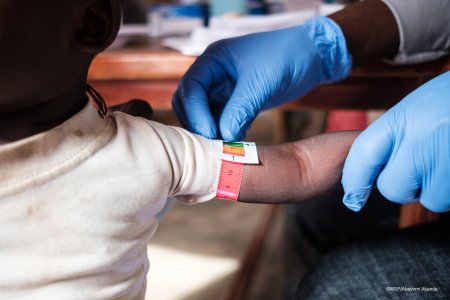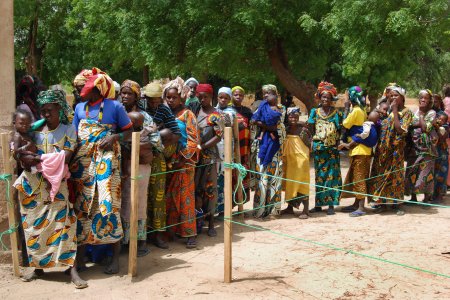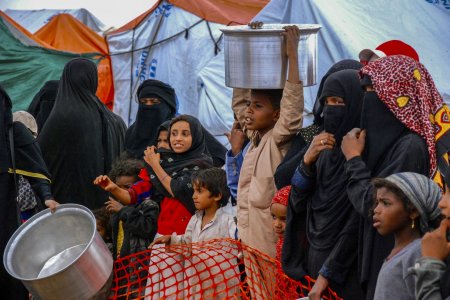 Djerabe Ndegrgar
Opinion
Djerabe Ndegrgar
Opinion
12/30/2022
Michel-Olivier Lacharité
This article was published on December 26th, 2022 on the Souk, the MSF associative website.
Accusing the mothers of malnourished children of being lawless fraudsters is a well-worn trope in malnutrition treatment programmes worldwide – and one that has resurfaced recently in Nigeria, stirred up by health workers and the media. These types of accusations obscure a series of tricky truths on the control of resources, the quality of malnutrition treatment programmes, and on the extreme precariousness in which many families live. We see all of this in northwest Nigeria’s Katsina state, where we are currently conducting the largest malnutrition programme in the history of Médecins Sans Frontières/Doctors Without Borders (MSF).
 Abayomi Akande
Interview
Abayomi Akande
Interview
05/05/2022
Jean-Hervé Bradol
Elba Rahmouni
All the warning lights are flashing red this year: drought, the high prices of grains and fertilisers exacerbated by the war in Ukraine, reduced imports and speculation, numerous armed conflicts, a record number of refugees to be fed, disengagement of institutional donors,… With the exception of locusts, all the determinants of severe food scarcity are there, from Afghanistan to the Sahel, including Yemen, the Horn of Africa, and the Indian subcontinent. To the point of threatening all of the progress that was made in treating undernutrition after the 2005 crisis in Niger, which was the starting point for global advances in managing malnutrition in places where it is commonplace. It is time for a general mobilisation to limit the scale of the coming catastrophe. Interview with Jean-Hervé Bradol by Elba Rahmouni.
 Karine Klein
Analysis
Karine Klein
Analysis
07/23/2010
Jean-Hervé Bradol
Using Niger as an example, this text seeks to explore the dilemmas involved in medical responses to child malnutrition when such malnutrition is endemic (strong, permanent presence) and gives rise to seasonal peaks (epidemics) each year.
 Francesco Segoni
Cahier
Francesco Segoni
Cahier
12/20/2009
Jean-Hervé Bradol
Jean-Hervé Jézéquel
Four years after the Nigerian crisis, many things have changed in the nutrition field. This Cahier du Crash aims at considering this evolution and explore new possibilities for action for MSF.
 Djerabe Ndegrgar
Opinion
Djerabe Ndegrgar
Opinion



